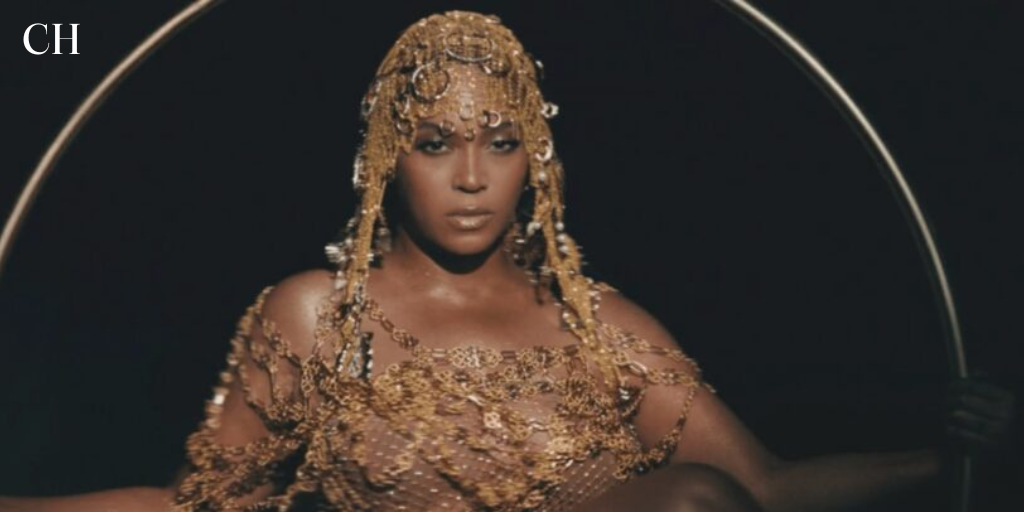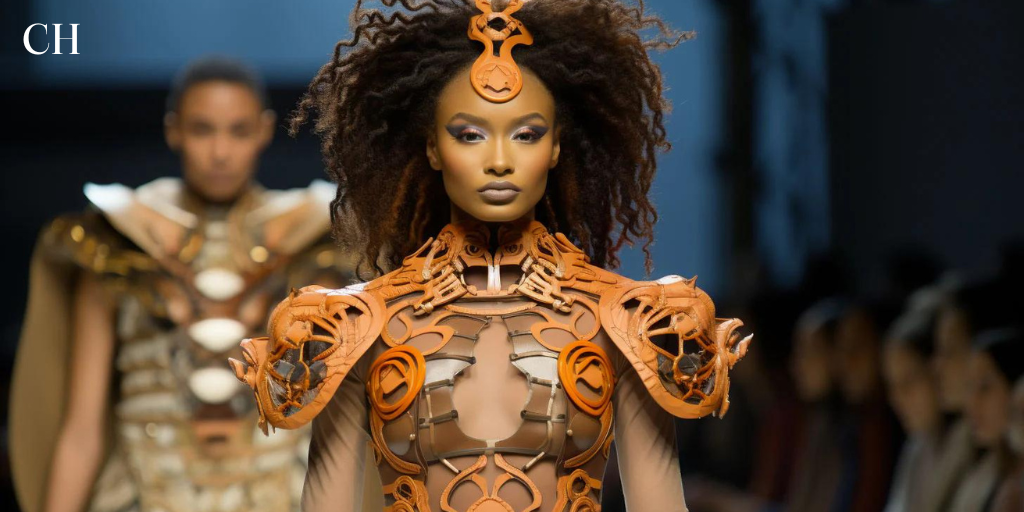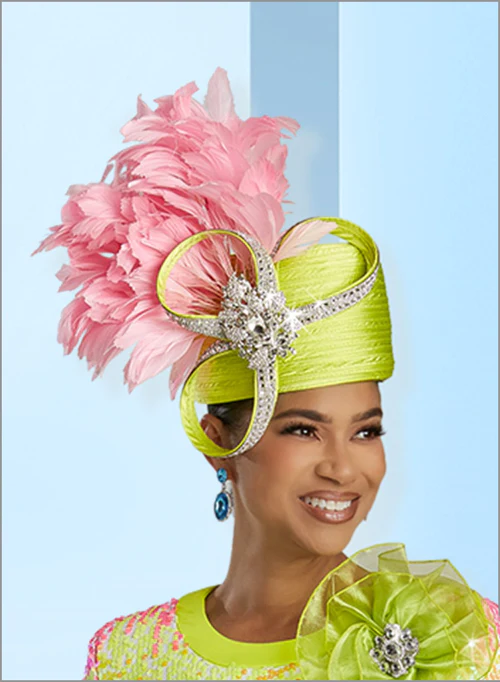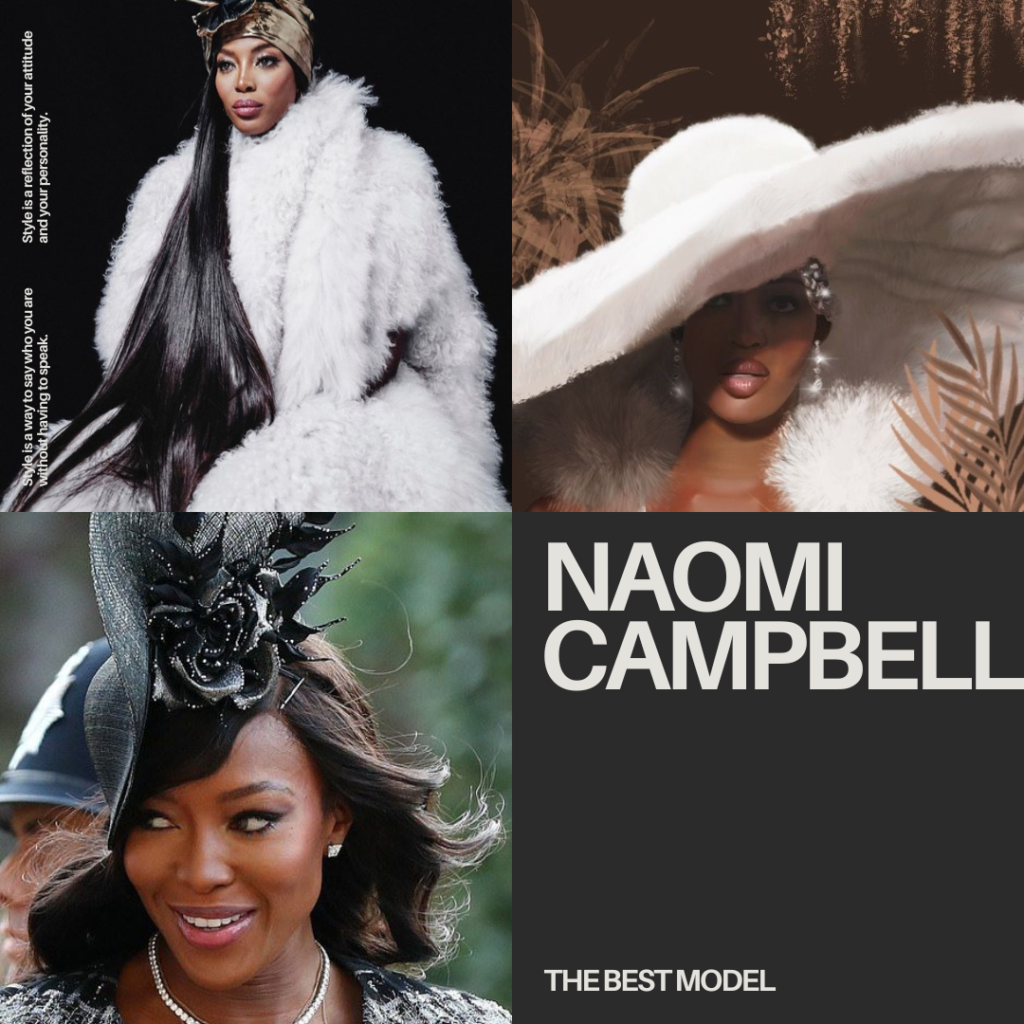
Afrofuturism is a prominent cultural movement in Black women’s fashion that combines African ancestry with futuristic aspects to create unique and expressive looks. This genre is inspired by African customs, science fiction, and technology, and it presents an inclusive and deeply rooted vision of the future based on Black identity. Afrofuturist fashion celebrates Black women’s originality and diversity via rich patterns, vibrant colors, and avant-garde designs, challenging conventional narratives and redefining beauty standards.
Self-representation and empowerment are central to Afrofuturism’s fashion philosophy. Black women designers and artists utilize clothes to communicate themes of resilience, imagination, and cultural pride. This movement is more than just aesthetics; it is a declaration of existence and opposition to historical erasure and marginalization. Afrofuturist fashion uses symbols and themes from African mythology and cosmology to create a visual language that connects the past, present, and future, resulting in a rich tapestry of cultural expression.
According to Refinery29 Afrofuturism is one of those terms that’s recently floated out of niche fandoms and entered into the mainstream, largely thanks to the mega-popularity of movies like Black Panther, artists like Janelle Monae, and events like Afropunk. These creations — most of them a product of African-American pop culture — are part of a defiant, creative generation of people from the African diaspora who mix sci-fi sensibilities with age-old traditions. As a fashion subculture, it’s easy enough to spot: powerful Black men and women dressed in Besotho blankets, Himba braids, Maasai collars, as well as Egyptian ankhs and crowns inspired by Yoruban deity Oshun — remixed with superhero textiles, gravity-defying jewelry, and technicolor hair.

Furthermore, Afrofuturism in Black women’s fashion frequently overlaps with other kinds of art and activism. It provides a venue for discussing social concerns such as racism, gender inequality, and economic imbalances. The futuristic components in the fashion designs represent hope and aspirations for a better future, whereas the African inspirations underline the value of cultural origins and heritage. This dichotomy makes Afrofuturist fashion an effective instrument for both personal and collective transformation, enabling Black women to envisage and construct their own destinies.
In recent years, the influence of Afrofuturism on Black women’s fashion has received widespread acknowledgment and visibility. High-profile artists and designers have popularized this aesthetic, highlighting the beauty and originality of Black culture on a global scale. This increased visibility serves to dispel preconceptions and deepen our awareness of African and African diasporic identities. As Afrofuturism evolves, it remains a vibrant and inspiring force in the fashion industry, embracing Black women’s voices and aspirations.


